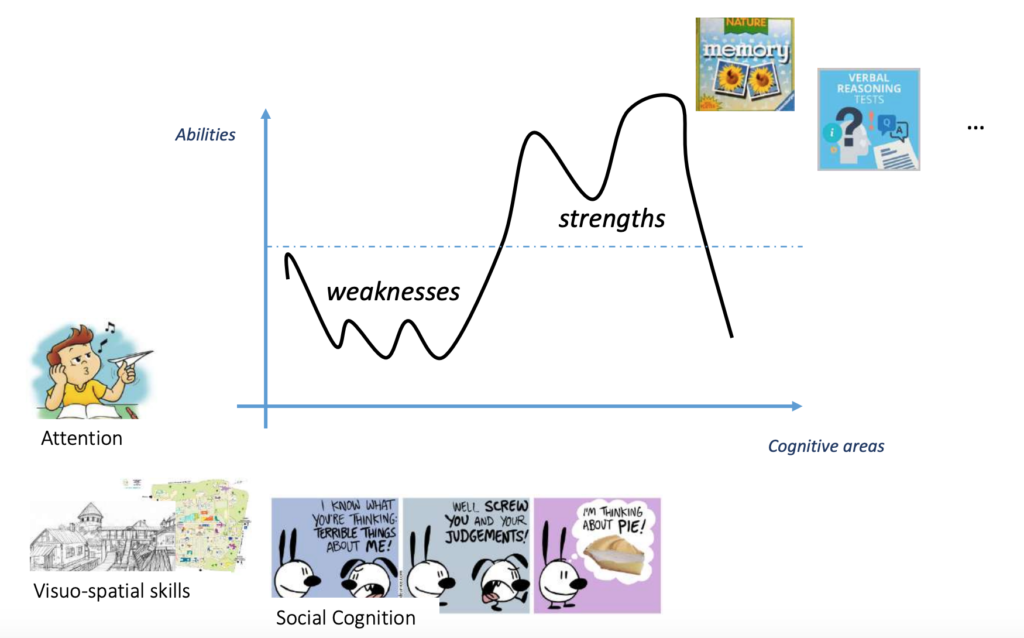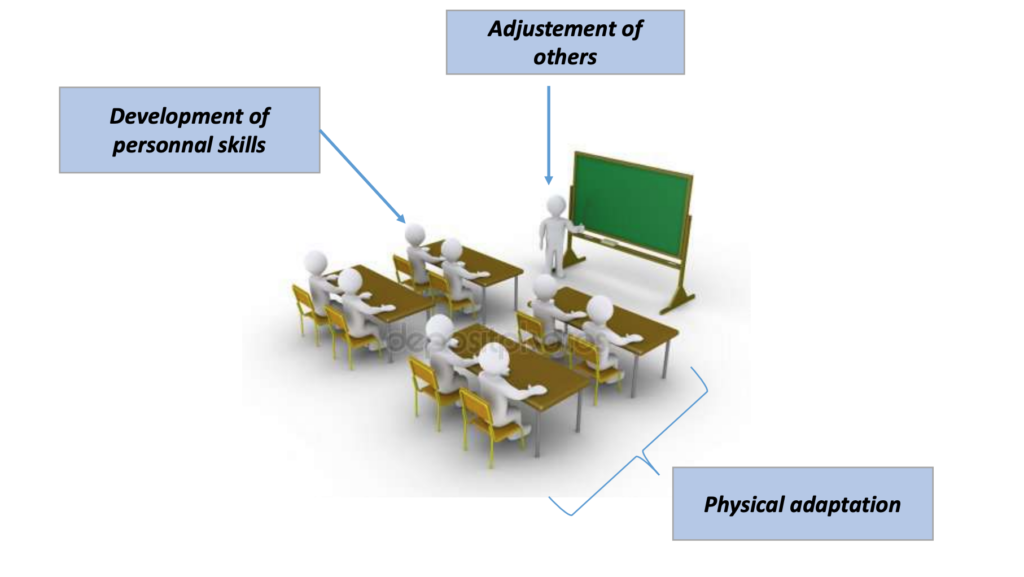During a keynote speech at the 3rd international conference on 22q11 in Barcelone, Dr. Emilie Favre shared her research on cognitive remediation for 22q11.
Weaknesses
The speaker first outlined some of the known weaknesses of 22q11 patients in settings such as schooling & working, daily life and social interactions in general. Those weaknesses include a deficit in visual attention, a poor perception of social scene and an inappropriate behavior in some situations.

Care strategies
The speaker then addressed some strategies that can be implemented to help 22q11 learn and adapt to social environments. These strategies include the adjustment of others, the development of personal skills and physical adaptation of the social scene.

Remediation programs
The speaker then covered some of the most relevant remediation programs, in the field of neurocognition and social cognition, with practical insights to help health professionals. These programs include the following:
Neurocognition in 22q11:
- CCRP Program developped by Posit Science (Harrell et al., 2013)
- COM program (Bracy et al., 1999; Mariano et al., 2015; Mariano et al., 2018)
- COGNITUS & MOI: a cognitive remediation tool designed to train the attentional and visuospatial skills of 5-13 year-old children (Demily et al., 2016; Favre et al., 2018)
Social cognition in 22q11:
- SCT Curriculum (Shashi et al., 2015)
- SOSTA-22 digital version (Glaser et al., 2018)
- RC-KID: a tool using eye-tracking feedbacks in the perspective of improving visual
- scanning of faces and thus social skills (Peyroux et al., under review)